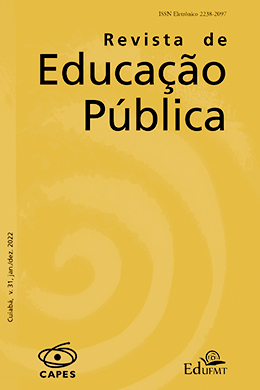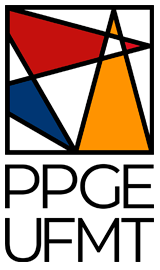DEZ PONTOS QUE PRECISAMOS DISCUTIR E REPENSAR NA PÓS-GRADUAÇÃO PÚBLICA
DOI:
https://doi.org/10.29286/rep.v31ijan/dez.13380Keywords:
Challenges in graduate programs, Program identity, Production, Assessment, Teacher accreditation, Open scienceAbstract
Public Graduate Programs in Brazil face the most critical moment in their entire history. More than the lack of funding, we have been systematically attacked, discredited, and persecuted in different social spaces. In this article, I present the scenario we face and indicate ten critical points to be discussed, changed, or overcome in our public graduate programs. Among these points is the need to review understandings about evaluation and production, revisit our norms and regulations, recognize the different identities of the programs, and invest in open science. If we ignore these points, we will continue with a distorted and limiting structure that will not allow us to advance effectively even with improvements in the political and economic scenarios.
Downloads
References
BARANAUSKAS, M. C. C. Being Socially Aware in Technology Design. In CHI Conference on Human Factors in Computing Systems Extended Abstracts. ACM. 2021. Disponível em: <https://doi.org/10.1145/3411763.3457778> Acesso em: 28 jan. 2022.
BARANAUSKAS, M. C. C. & DE SOUZA, C. S. Desafio 4: Acesso participativo e universal do cidadão brasileiro ao conhecimento. Computação Brasil, v. 23, n. 7, p. 7, 2006.
BRASIL. CONSTITUIÇÃO DA REPÚBLICA FEDERATIVA DO BRASIL DE 1988. Governo Federal. 1988. Disponível em: <http://www.planalto.gov.br/ccivil_03/ constituicao/constituicao.htm>. Acesso em: 28 jan. 2022.
BRASIL. DECRETO Nº 1.171. Código de Ética Profissional do Servidor Público Civil do Poder Executivo Federal. Governo Federal. 1994. Disponível em: <http://www.planalto.gov.br/ccivil_03/decreto/d1171.htm>. Acesso em: 28 jan. 2022.
CASTILHO, M. et al. Software, Cidadania e Liberdade: o C3SL em 18 anos de conhecimento compartilhado. SBC Horizontes, jun. 2020. ISSN 2175-9235. Disponível em: <http://horizontes.sbc.org.br/index.php/2020/06/05/software-cidadania-e-liberdade-o-c3sl-em-18-anos-de-conhecimento-compartilhado/>. Acesso em: 28 jan. 2022.
FREIRE, P. Pedagogia do Oprimido. Editora Paz & Terra. 71ª edição. 2019.
BOSCH, G. Train PhD students to be thinkers not just specialists. Nature, v. 554, n. 7690, p. 277-278, 2018.
MCU. Magna Charta Universitatum. 1988. Disponível em: <http://www.magna-charta.org/resources/files/the-magna-charta/portuguese>. Acesso em: 28 jan. 2022.
MCU. Magna Charta Universitatum. 2020. Disponível em: <http://www.magna-charta.org/magna-charta-universitatum/mcu-2020>. Acesso em: 28 jan. 2022.
ONU, Organização das Nações Unidas. Declaração Universal dos Direitos Humanos. 1948. Disponível em: <https://www.unicef.org/brazil/declaracao-universal-dos-direitos-humanos>. Acesso em: 28 jan. 2022.
ORTIZ, J. et al. Pensamento Computacional e Cultura Digital: discussões sobre uma prática para o letramento digital. In: Brazilian Symposium on Computers in Education (Simpósio Brasileiro de Informática na Educação-SBIE). 2019. p. 1241.
PEREIRA, Roberto; PERES, Leticia; SILVA, Fabiano. Hello World: 17 habilidades para exercitar desde o início da graduação em Computação. In: Anais do Simpósio Brasileiro de Educação em Computação. SBC, 2021. p. 193-203.
PPGINF, Programa de Pós-Graduação em Informática. Base de Planejamento Estratégico: 2018-2020. Relatório Técnico. Departamento de Informática. UFPR. 2018.
PUSKA, A.; PICCOLO, L. & PEREIRA, R. DisMiss False Information: A Value Matter. Human Computer Interaction and Emerging Technologies: Adjunct Proceedings, p. 75, 2020.
SANTAELLA, L. O que é semiótica. Brasiliense, 2017.
SAR, Scholars at Risk. Free to Think 2019. Relatório Técnico. Academic Freedom Monitoring Project. 2019. 72p. Disponível em: <https://www.scholarsatrisk.org/wp-content/ uploads/2020/01/Scholars-at-Risk-Free-to-Think-2019.pdf>. Acesso acesso: 28 jan. 2022.
SAR, Scholars at Risk. Free to Think 2020. Relatório Técnico. Academic Freedom Monitoring Project. 2020. 128p. Disponível em: <https://www.scholarsatrisk.org/wp-content/ uploads/2020/11/Scholars-at-Risk-Free-to-Think-2020.pdf>. Acesso acesso: 28 jan. 2022.
SAR, Scholars at Risk. Free to Think 2021. Relatório Técnico. Academic Freedom Monitoring Project. 2021. 116p. Disponível em: <https://www.scholarsatrisk.org/wp-content/ uploads/2021/12/Scholars-at-Risk-Free-to-Think-2021.pdf>. Acesso acesso: 28 jan. 2022.
SETENARESKI, L.; SHIMA, W.; SUNYE, M. & PERES, L. Open Digital Repositories - The Movement of Open Access in Opposition to the Oligopoly of Scientific Publishers. In Proceedings of the 18th International Conference on Enterprise Information Systems. pages 583-593. 2016. DOI: 10.5220/0005835805830593.
STAMPER, R. K. Organisational semiotics: Informatics without the computer? In: Information, organisation and technology. Springer, Boston, MA, 2001. p. 115-171.






















































